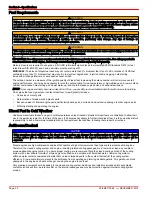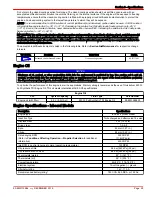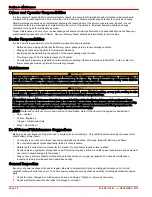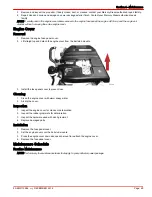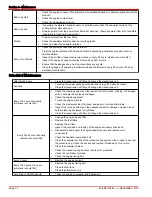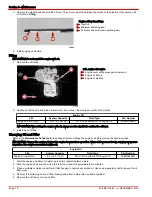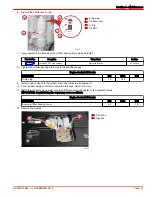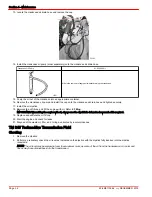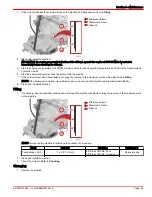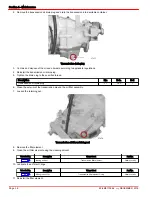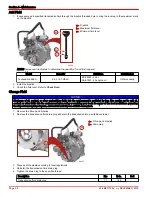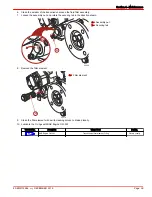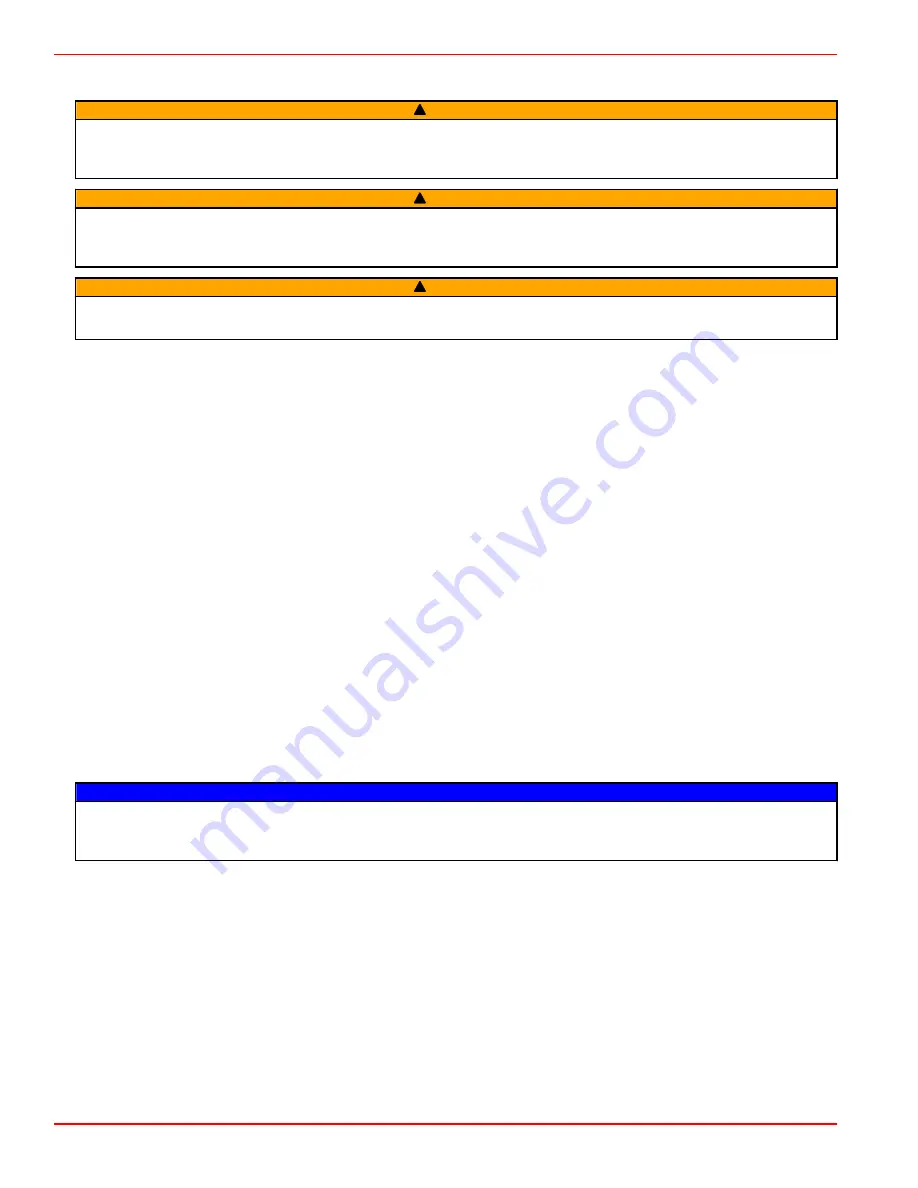
Section 3 - Specifications
Page 24
90-8M0113986
eng
DECEMBER 2015
Fuel Requirements
!
WARNING
Failure to comply with regulations can result in injury from fire or explosion. Electrical system components on this engine are
not rated as external ignition–protected (EIP). Do not store or use gasoline on boats equipped with these engines, unless
provisions have been made to exclude gasoline vapors from the engine compartment (REF: 33 CFR).
!
WARNING
Fuel leakage is a fire or explosion hazard, which can cause serious injury or death. Periodically inspect all fuel system
components for leaks, softening, hardening, swelling, or corrosion, particularly after storage. Any sign of leakage or
deterioration requires replacement before further engine operation.
!
WARNING
This engine requires diesel fuel. Mixing gasoline, gasohol, or alcohol and diesel fuel can cause serious injury or death due to
fire or explosion. Never mix gasoline, gasohol, or alcohol with diesel fuel.
IMPORTANT: Use of improper or water‑contaminated diesel fuel can seriously damage your engine. Use of improper fuel is
considered misuse of the engine, and damage caused thereby will not be covered by the warranty.
Mercury diesels are required to use grade 2–D ULSD (ultra‑low sulphur diesel) fuel meeting ASTM Standards D975 (or fuel
rated Diesel DIN EN 590), and having a minimum cetane rating of 51.
BIODIESEL:
The blend of diesel fuel used may not contain more than 7% biodiesel fuel. Use of LSD or blends of ULSD fuel
containing more than 7% biodiesel fuel may result in fuel system degradation, injection nozzle clogging, hard starting,
increased oil change intervals, or excessive exhaust smoke.
The cetane number is a measure of the ignition quality of diesel fuel. Increasing the cetane number will not improve overall
engine performance, but it may be necessary to raise the cetane rating for low‑temperature or high‑altitude use. A lower cetane
number could cause hard starting and slower warm‑up, and could increase engine noise and exhaust emissions.
NOTE: If your engine suddenly becomes noisy after a fill‑up, you possibly received substandard fuel with a low cetane rating.
On engines that use high sulphur content diesel fuel, this will greatly increase:
•
Corrosion on metal parts
•
Deterioration of elastomer and plastic parts
•
Excessive wear of internal engine parts, particularly bearings, and corrosion and extensive damage to other engine parts
•
Difficulty starting and operating the engine
Diesel Fuel in Cold Weather
Unaltered diesel fuels thicken and gel in cold temperatures unless treated. Virtually all diesel fuels are climatized to allow their
use in the particular region for that time of the year. If it becomes necessary to further treat diesel fuel, it is the owner/operator's
responsibility to add a commercial standard brand of antigel diesel fuel additive, following that product's directions.
Antifreeze/Coolant
NOTICE
Using propylene glycol antifreeze in the closed cooling system can damage the cooling system or the engine. Fill the closed
cooling system with an ethylene glycol antifreeze solution suitable to the lowest temperature to which the engine will be
exposed.
Diesel engines are high‑compression engines that operate at higher temperatures than typical internal combustion engines.
Therefore, the closed‑cooling system and engine, including related cooling passages, must remain as clean as possible to
provide adequate engine cooling. To ensure proper cooling, we recommend filling the closed‑cooling section of the cooling
system with a low silicate formula of ethylene glycol antifreeze in a solution with deionized water. Common tap water or
softened water contains unwanted minerals that can leave large deposits in the system that restrict the cooling system
efficiency. A low silicate formula prevents the antifreeze from separating and forming a silicate gelatin. This gelatin can block
passages in the engine and heat exchanger, causing the engine to overheat.
Only premixed coolant should be added to the closed‑cooling system. Additives and inhibitors introduced into acceptable
coolant solutions will form a protective film on the internal passages and provide protection against internal cooling system
erosion.
Содержание 92-8M0069603
Страница 2: ......
Страница 8: ...Page iv 90 8M0113986 eng DECEMBER 2015 ...
Страница 68: ...Section 4 Maintenance Notes Page 60 90 8M0113986 eng DECEMBER 2015 ...
Страница 84: ......















